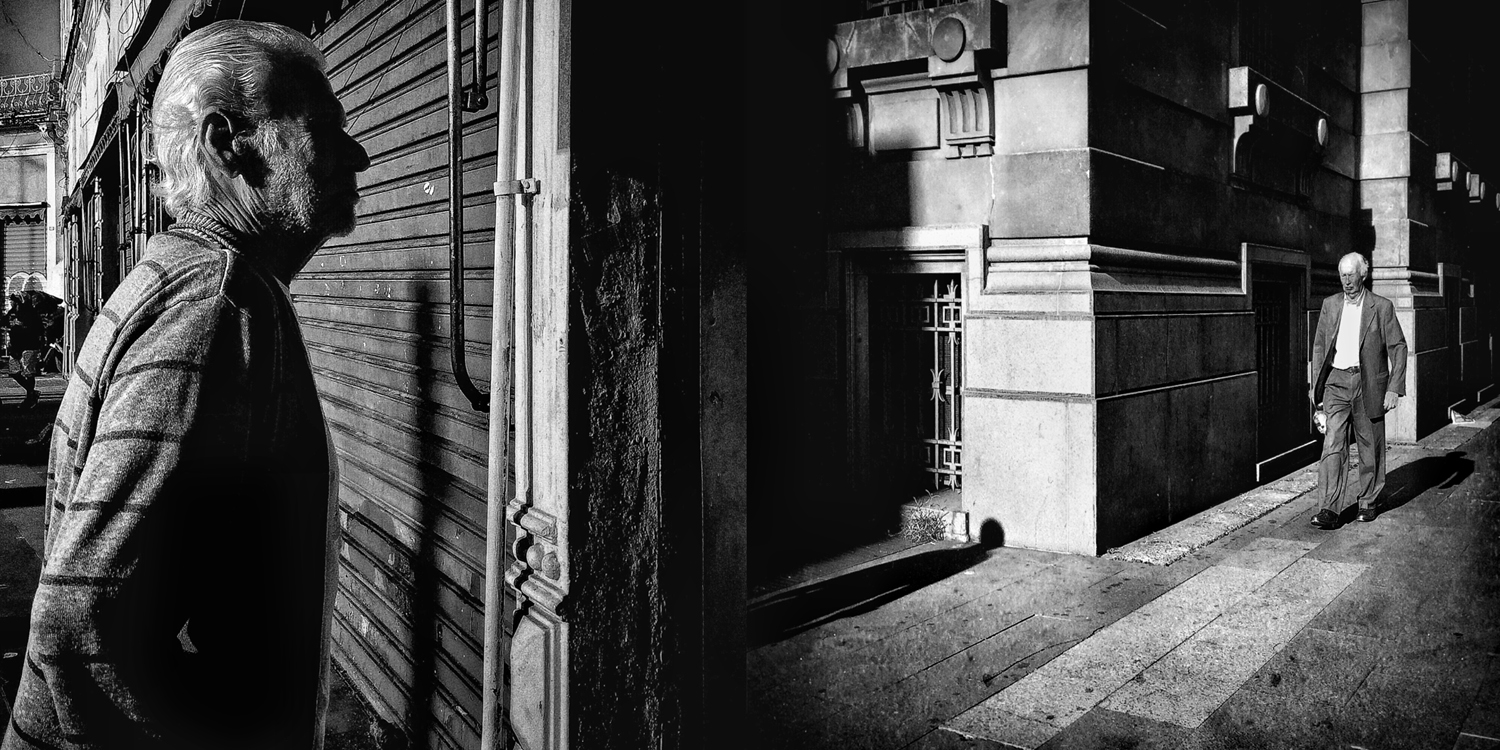
The labyrinthine streets spread like cracks on the downtown area of São Paulo. I walk shouldering my way through the crowd, keeping the man in my line of sight.
The street I chase him on is older than the very foundation of the city. It already was a path crossed by animals and natives along the forest, before the Society of Jesus forged a spiritual connection with the Madhat Pasha street in Damascus. São Paulo was meant to be the Heaven’s Capital on Earth — so it’s written on the letters exchanged between the Jesuits. Truth is, it became a kind of El Dorado of Brazil. Drifters from all over the country seeking fortune on this piece of land, mostly failing nowadays.
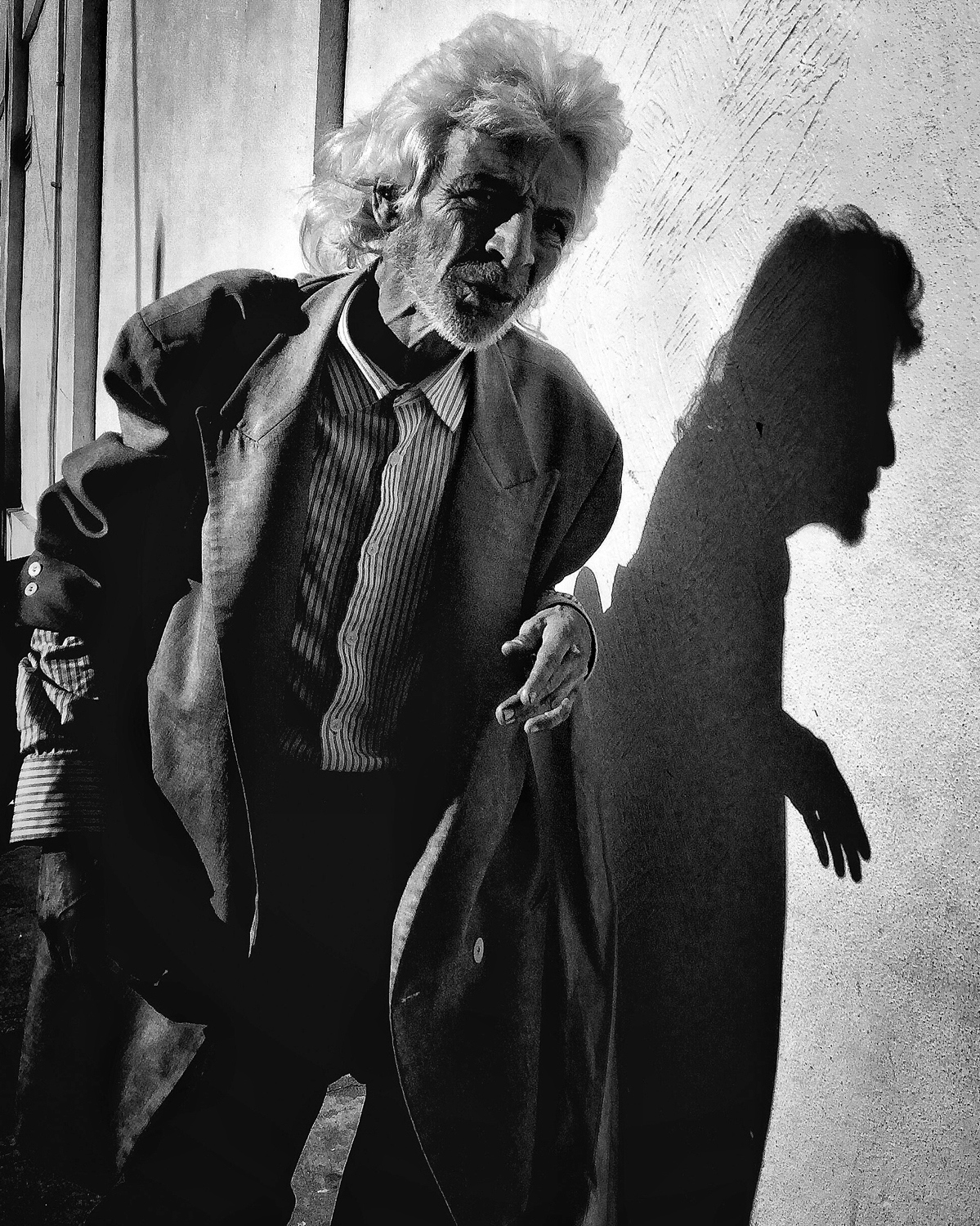
I’m trying to make some sense of my woolgathering. It comes with the job, I suppose.
The job isn’t new — you’ve already seen the story. Maybe you even took a part on it. It all comes down to someone wishing something one can’t have.
I could tell my client exactly how the story ends, but I wouldn’t get paid for playing Sherlock. The job has taught me that seeing is important. People are drawn to suffering like moths to lamps — a kind of messed up script hardwired in our brains.
I’m not a monk to delve into the philosophy about it, nor a scientist to prove it. I tell what I see, that’s all.
I wait for the man to exit the restaurant. He’s oblivious to me, although I’m a little too big to ignore. He’s alone, without the briefcase. I know where he’s headed to, so I decide to go somewhere else.
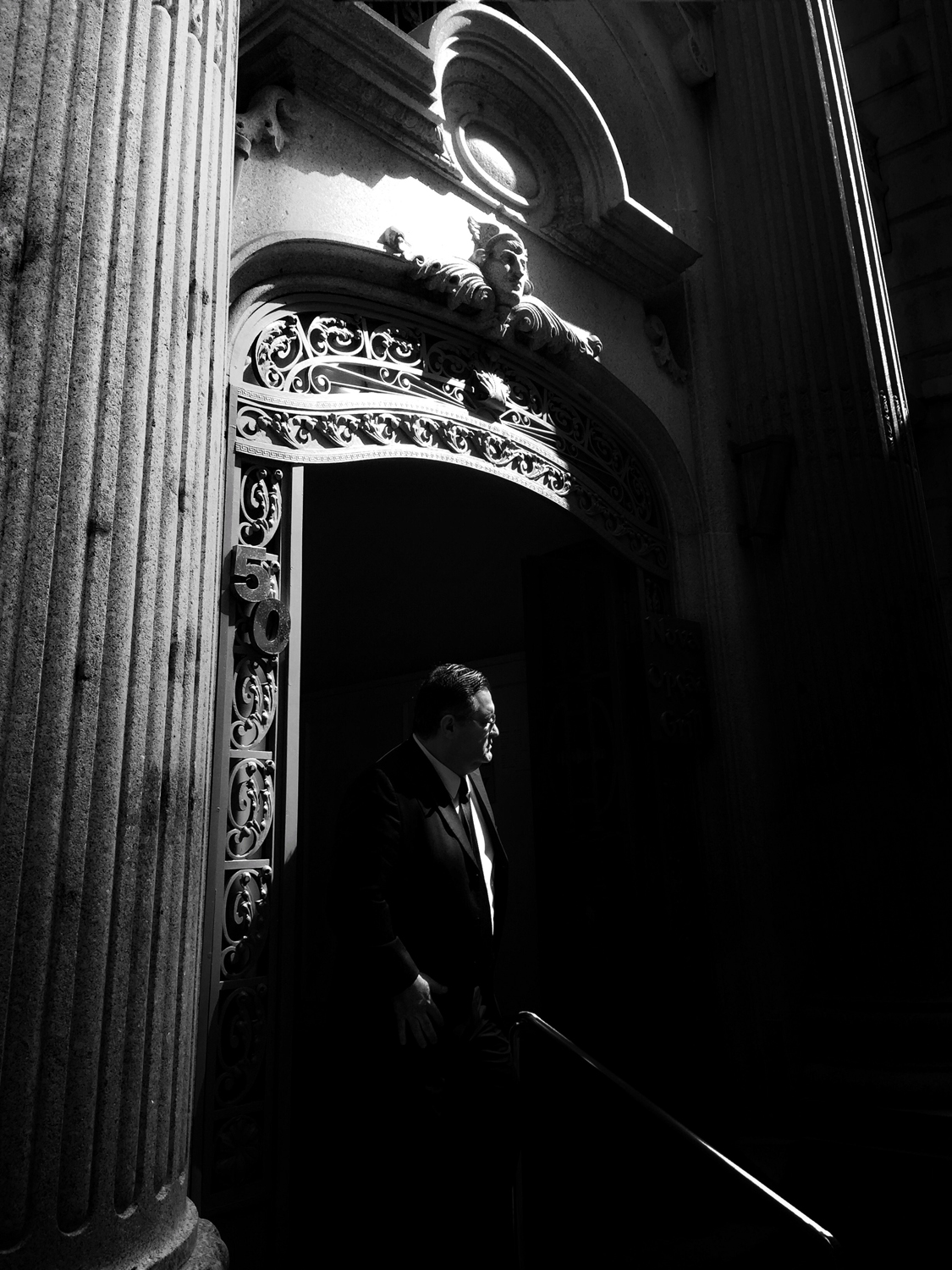
São Paulo was known as “the land of drizzle”. Things have changed during the last decades — for the worse, if you ask me.
It’s Autumn, but it doesn’t feel like it. This temperature could be Summer in any northern hemisphere country. I wonder if the heat loosen the reins of civility here, making people less patient, less good tempered.
Regardless, businessmen march with their dark suits and bright ties on the shadows of financial buildings. They march side by side with the ever growing homeless population, ignoring them behind their sun glasses, puffing on cigarettes and checking their phones. Billboard men on every corner wear plaques advertising gold and diamond brokers, shady attorney services, the sale of doctor’s notes for paid absent days at work. They have blank stares and tanned, cracked skin because of the sun. I wonder where their minds wonder.
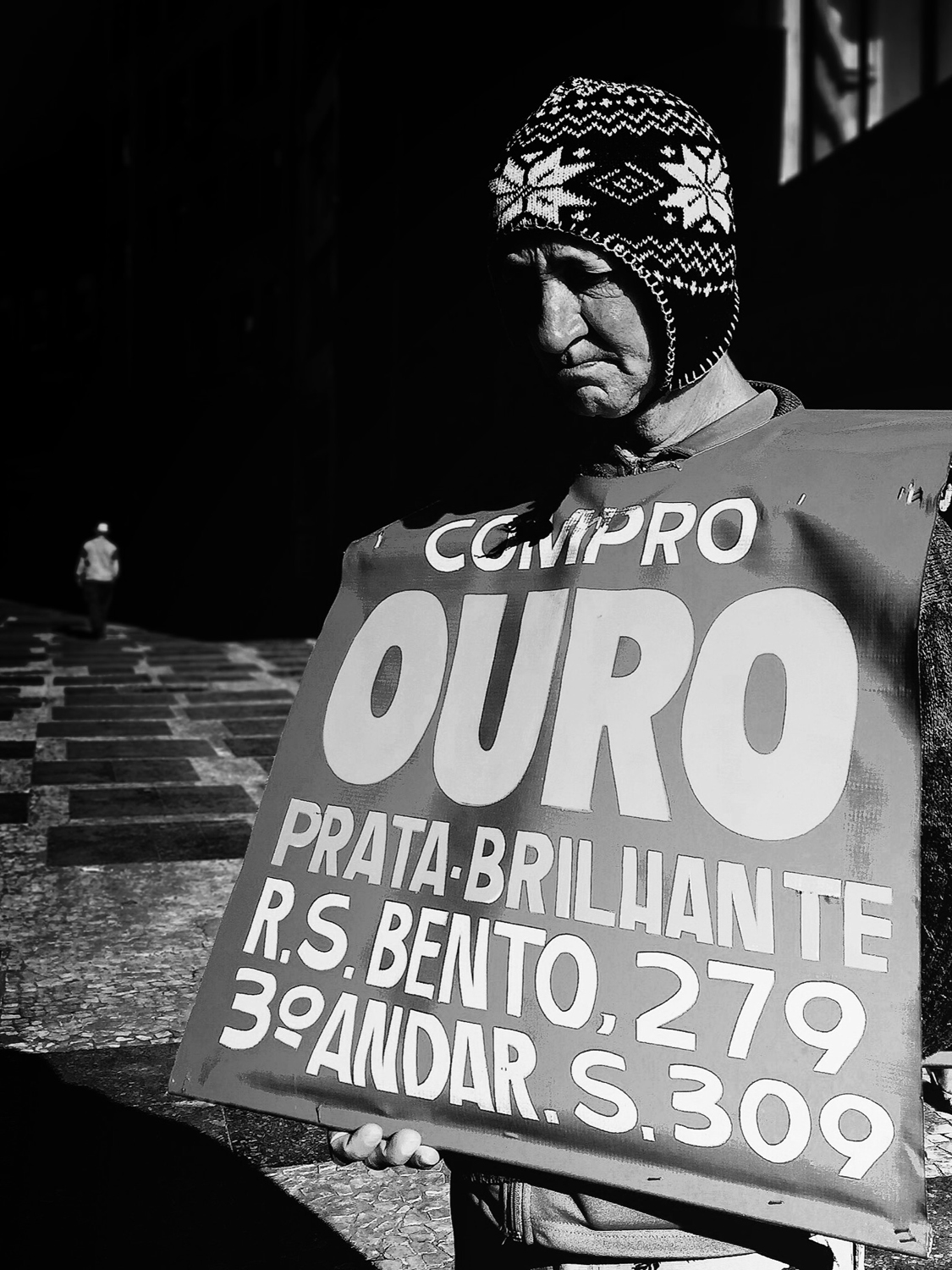
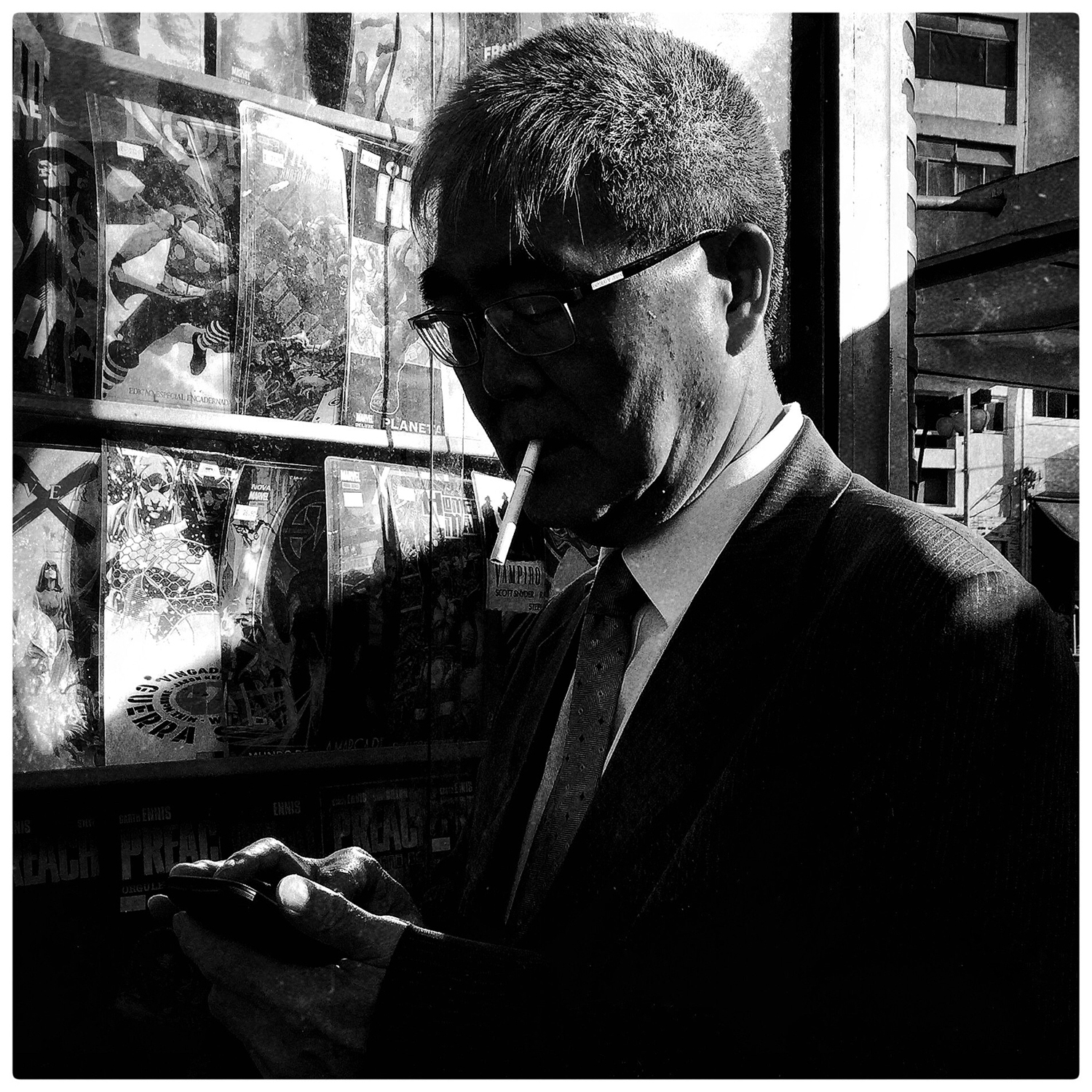
I see the woman where I already knew she was. It’s a matter of pattern recognition. People are much more predictable than they think.
When she gets tired of waiting, I follow her. I debate for a moment about my options here. I decide to play by the rules of common sense.
She walks like a ghost, dragging invisible anchors and lost in her reveries. I wait by the old phone cabin as she takes a turn and faces the sun, as if this path could lead her to some kind of enlightenment. Or maybe it’s just me, seeing her story as mine. Pattern recognition.
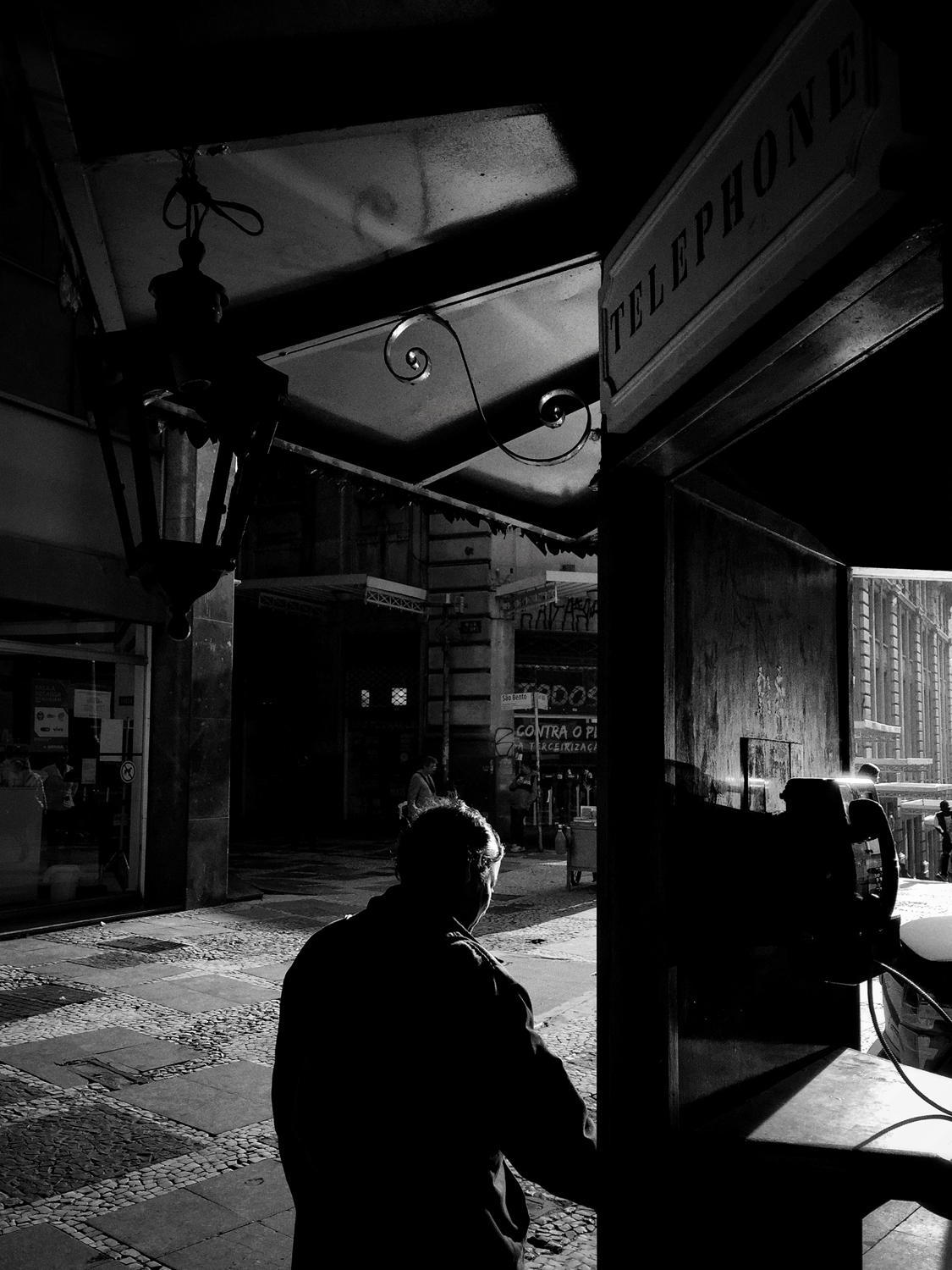
She enters a small store and leaves with the bag. She wanders through the streets until we arrive at the site of the city’s foundation. I remember that before the Society of Jesus, this place was a cemetery for many indigenous tribes. They met here to bury their dead and to negotiate. Death and contracts seems to be always hand in hand in a twisted way.
The Imortal Glory stands tall, on the top of the stone column, as a guide for the lost. I write the time and place in my notepad and take one last shot as the woman walks to the bus stop.
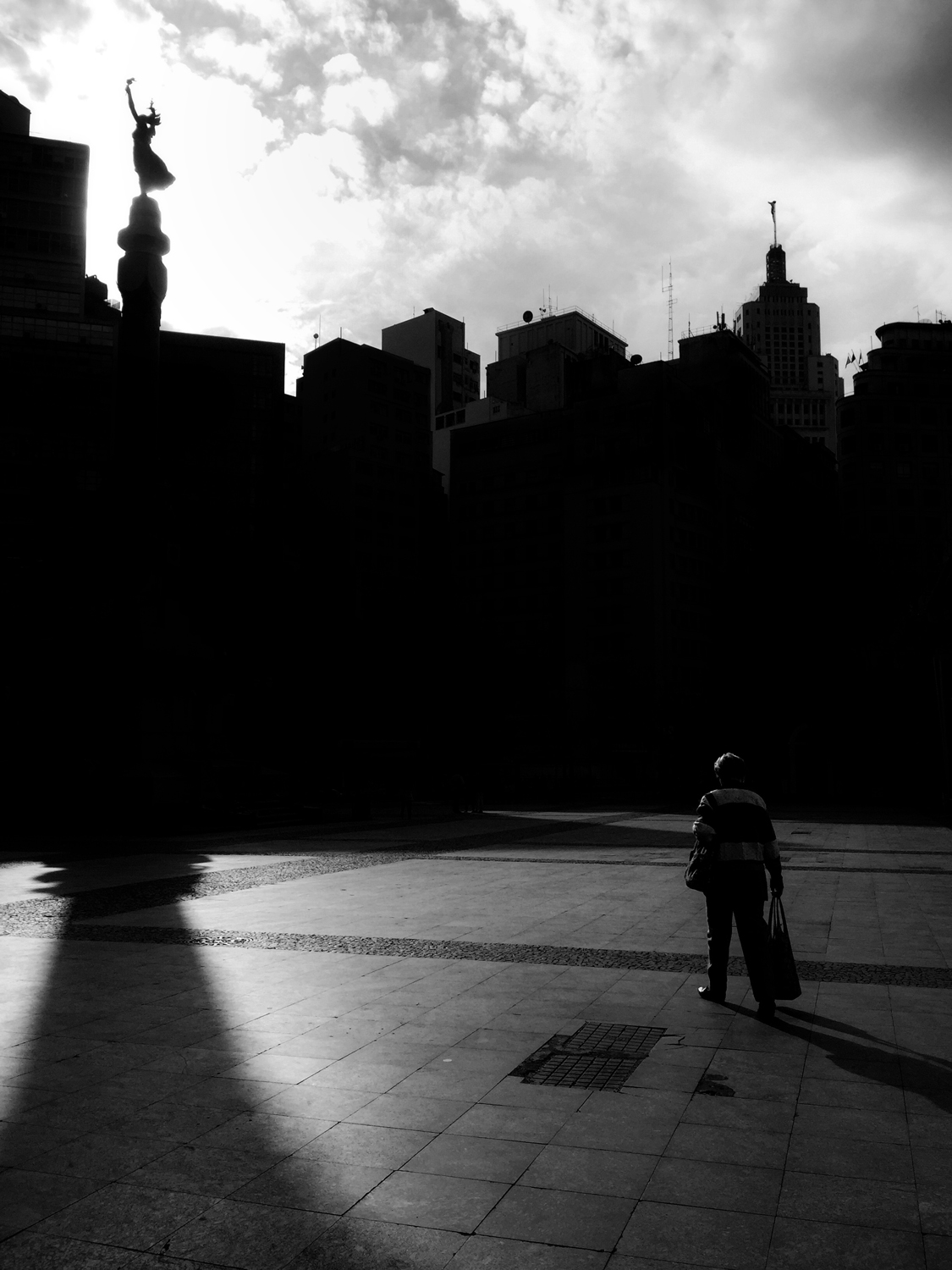
Then I leave her, hearing the whispers of my own demons feeding on my thoughts. I debate again about my options here.
There are certain rules I promised to never break again – which doesn’t means it won’t happen. There are things much stronger than promises in this world.
This city is a spawn of such things. So is this job.
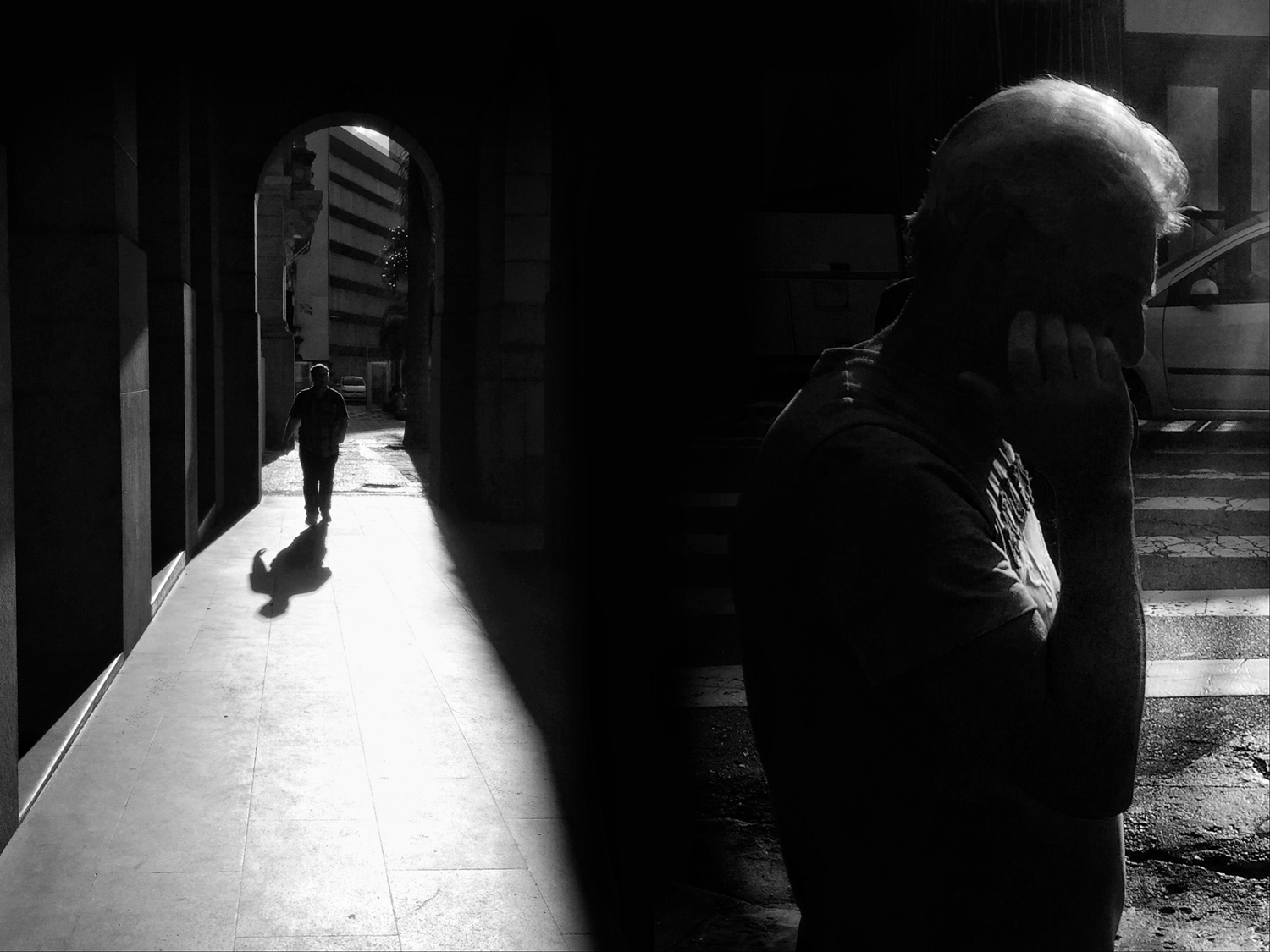
From all the stories about São Paulo, there’s one that seems like a prophecy for the dwellers of these dirty streets. An omen I constantly see between the lines in every case, like a signature of Fate, although few know about it.
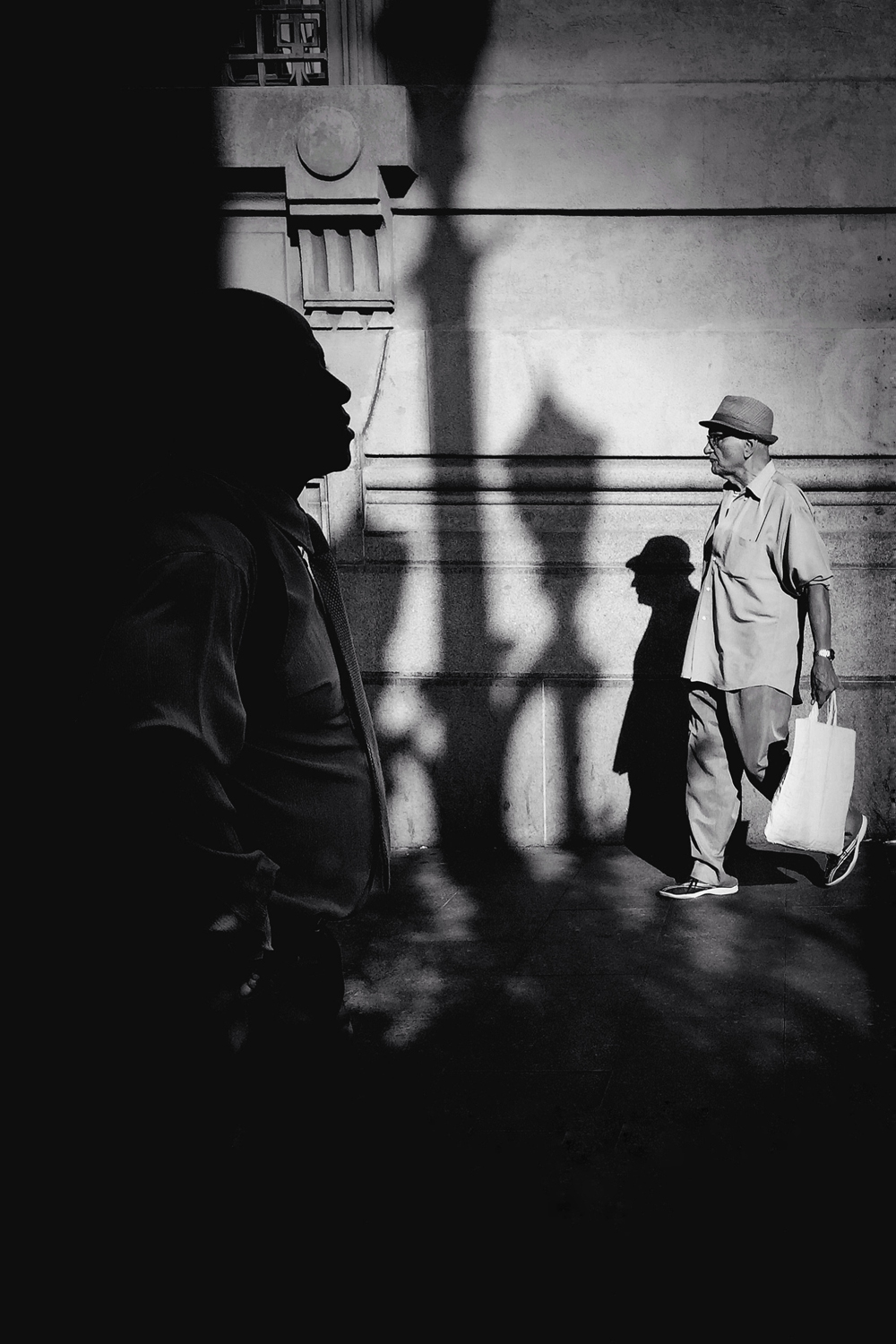
There was a Portuguese pirate living on the coast, about 40 miles from where the Jesuits would settle. He was the most merciless Indian hunter at the time, killing most of the men and enslaving the women for his pleasure. But things suddenly changed.
History tells he was not only converted by the priests — joining their mission — but became a feverish believer and preacher among the native Indians. One day, when the Society of Jesus decided it was about time to expand their influence, it was the former pirate who picked the shortest straw.
He left towards the unknown landscapes beyond the Society’s settlement and crossed paths with warriors from a local tribe. And you can guess what happened next. A rain of arrows left him bleeding to death under the blazing sun.
One of the Jesuits later wrote in his letters that “the Lord would establish His Church, now that He had bathed the foundations with so glorious blood”.
A city founded by religious missionaries, with a promise of Heaven, consecrated by the murder and the blood of a former pirate.
This job has taught me that promises of light are bound to hard shadows. All the contracts signed with Fate have secret dark pages we can never read.
I feel a lot like this city.
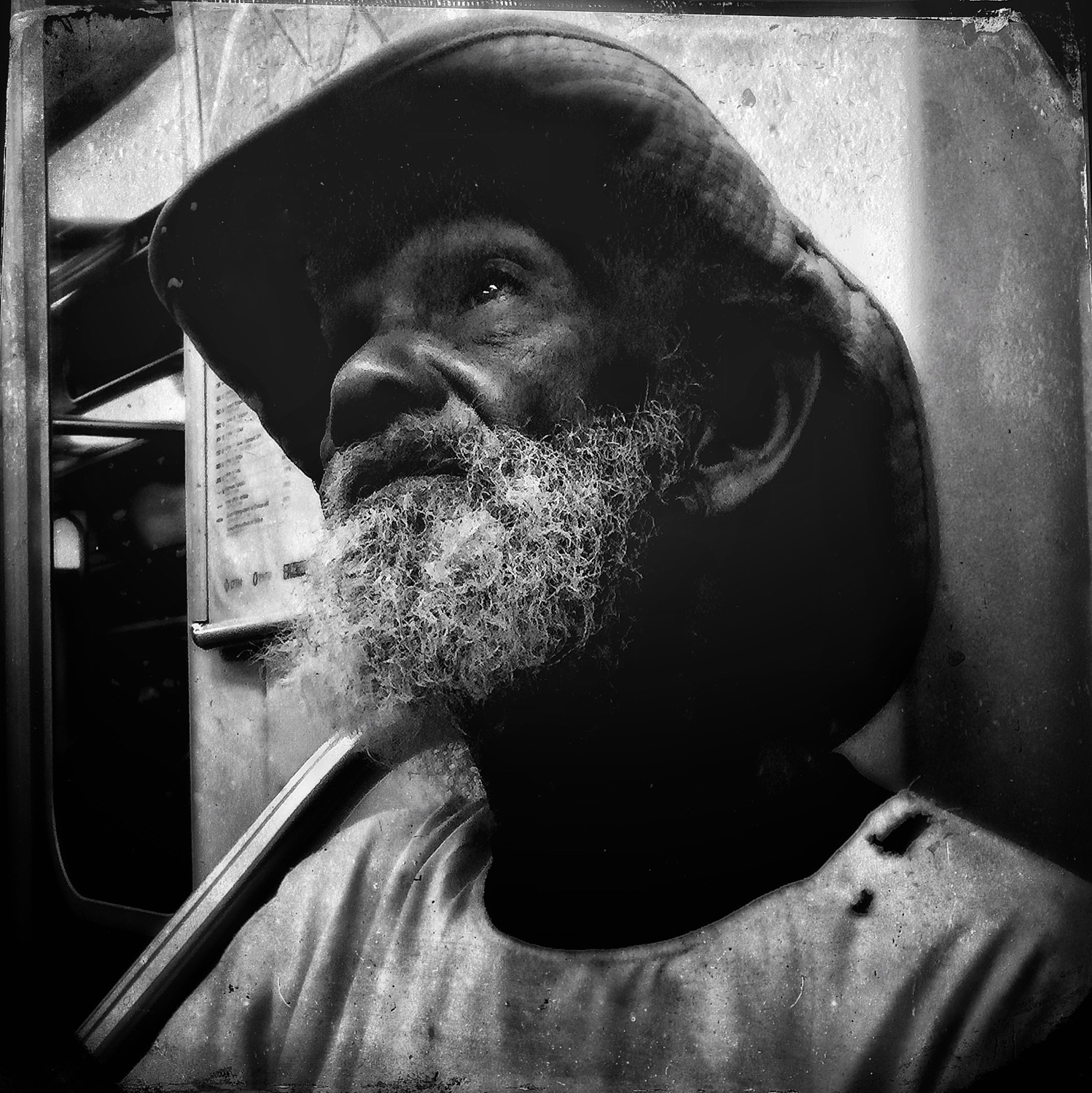
The phone rings on my way back to the office. I see the client’s name on the screen and I ignore the call, but I know he will be waiting for me. Moths and lamps.
I keep walking aimlessly for a while collecting faces and silhouettes. The man lights the cigarette but seems like confessing on the sidewalk. Another man sees when I point the camera at him and leaves with a suspicious look. For a brief moment I almost can understand what I’m looking for. What is the purpose of this, what’s the story I’m living in.
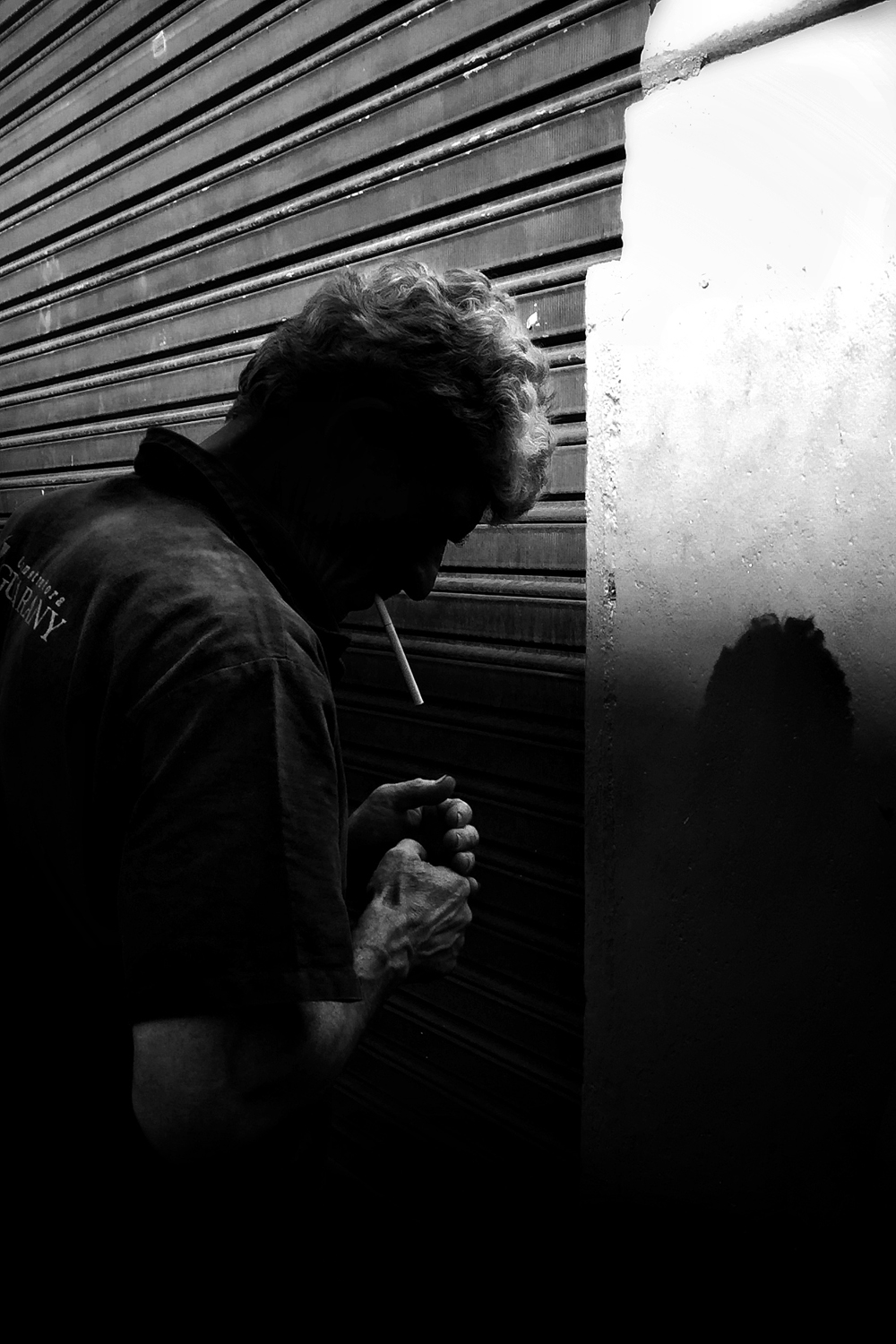
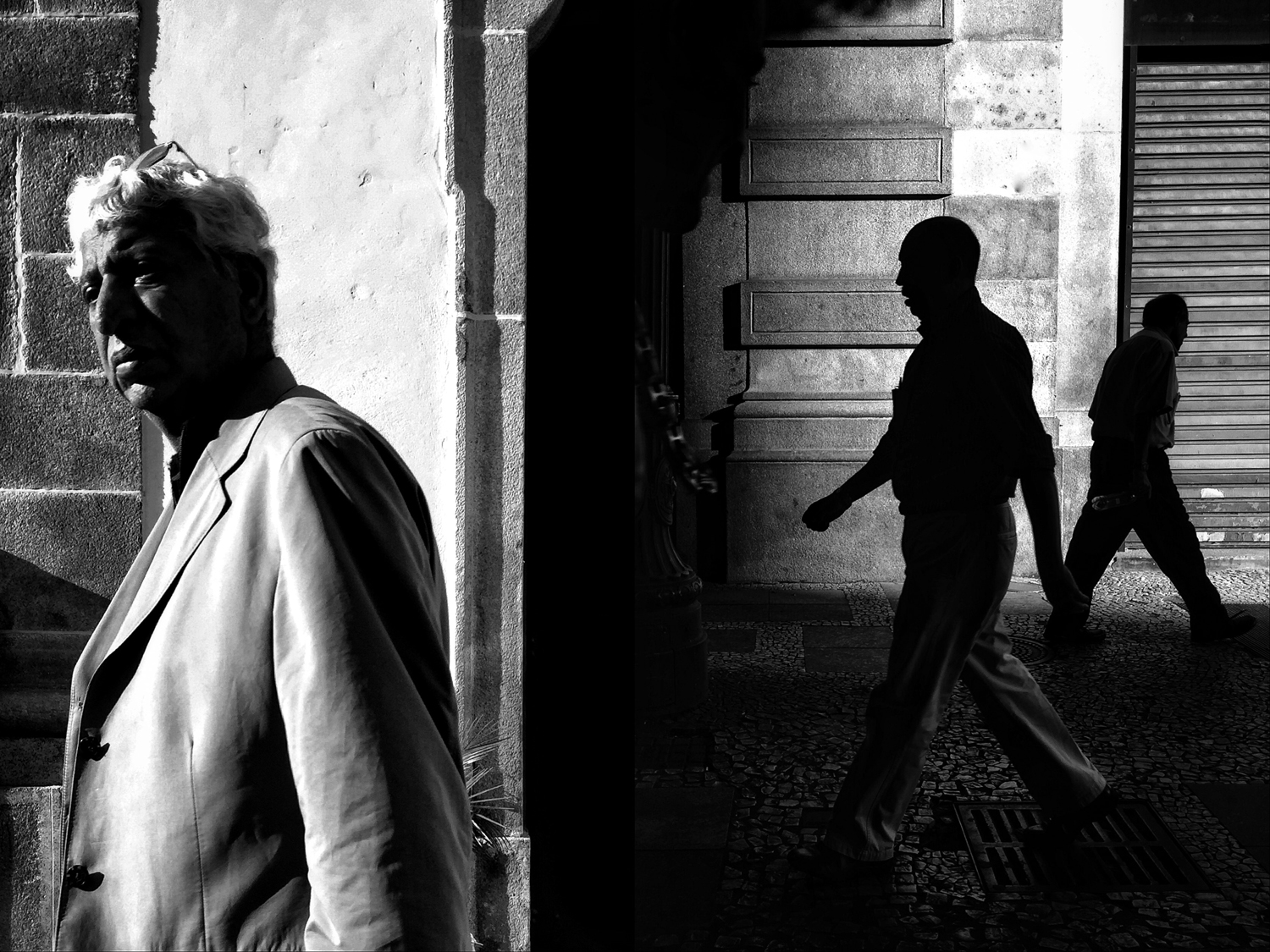
When I meet my client, I show him everything I’ve got. I explain the case using the words as knives, twisting the blades a little more on each sentence.
I take no pleasure doing this, don’t get me wrong. I’m another kind of monster.
The job had taught me that such pain is the closure the clients seek — and I’m good at the the job.
He pays me and disappears behind the door. I hope I never meet him again.
Looking through the window I see the sun vanishing behind the buildings. The last rays of light ignite the polluted air on the horizon with the most beautiful red and orange tones. People cast long shadows down there on the streets.
I close the curtain and shut off the phone as the day slowly ends. In less than an hour there will be just shadows — the city’s true calling.
I open the bottle of bourbon and wait for the night and its truths, relieved by the distance from the promises of the day.
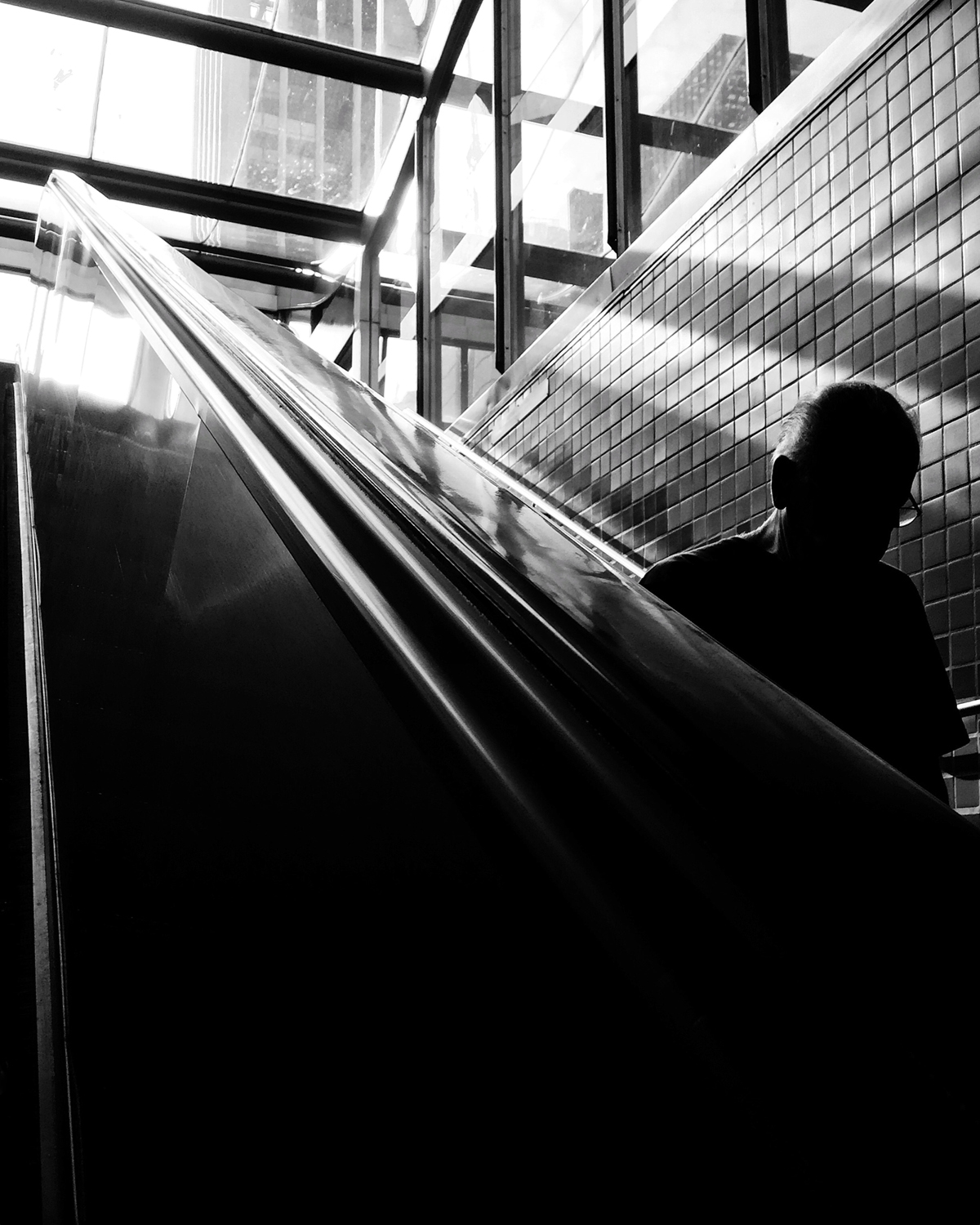
THE END
Leandro Leme is a photographic artist from São Paulo, Brazil. More of his work can be seen on Instagram | 14&15 Mobile Photographers.
About Author
Latest stories
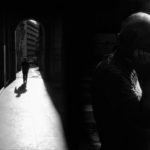 Leandro LemeFebruary 2, 2017Blazing Sun and Hard Shadows – A Noir Chronicle
Leandro LemeFebruary 2, 2017Blazing Sun and Hard Shadows – A Noir Chronicle

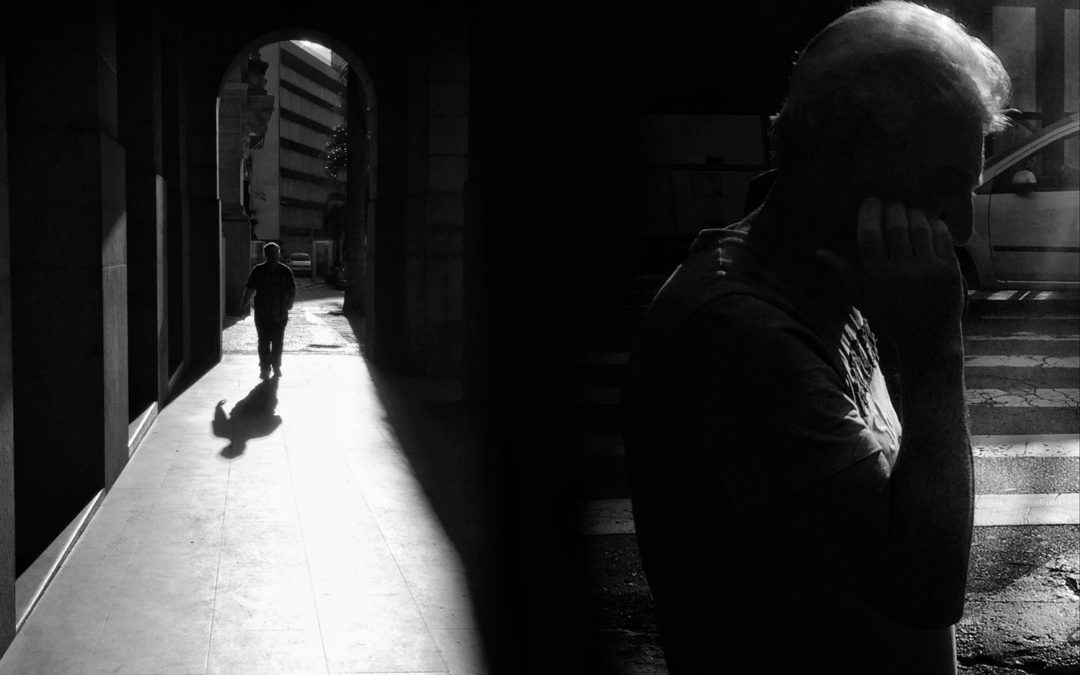
I know the streets of SP from regular visits years ago and the descriptions are perfection, the atomosphere & feeling of the people as well. I couldnt stop reading it, it beautifully portrayed, both in images & words, with you as part of the streets. A story people will remember & well deserved Bourbon. Huge Congratulations Leo.
Caro, thank you so much for your support. I’m thrilled to know you used to visit São Paulo! If you ever come here again, let me know!
L